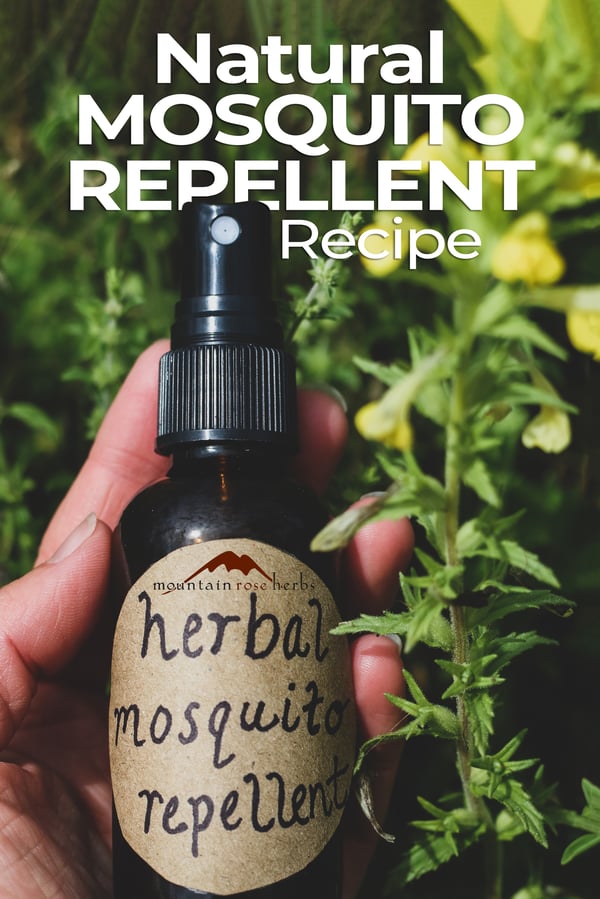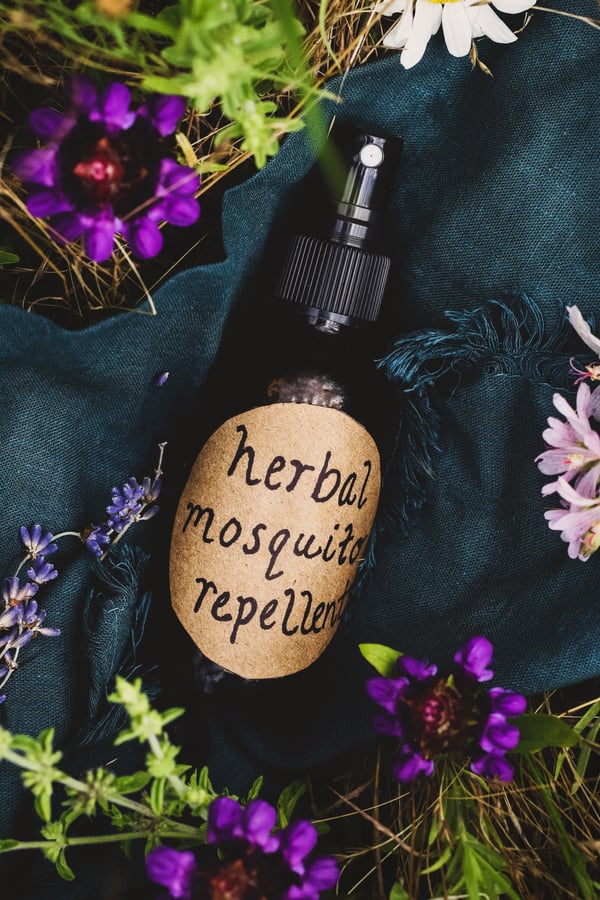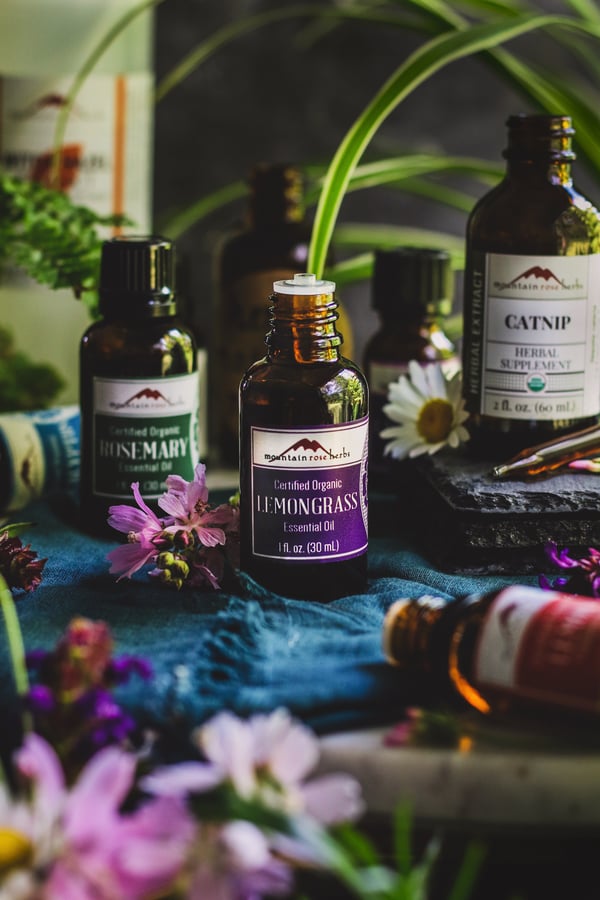Herbal Mosquito Repellent
Makes about 4 oz.
Ingredients
- 2 oz. organic catnip leaf extract, or make your own tincture
- 2 oz. organic witch hazel extract
- 10 drops organic Atlas cedarwood essential oil
- 10 drops organic lemon eucalyptus essential oil
- 10 drops organic lavender essential oil
- 10 drops organic rosemary essential oil
- 5 drops organic lemongrass essential oil
- 5 drops organic lemon essential oil
Directions
- Pour both catnip extract and witch hazel extract into an 4 oz. bottle.
- Slowly drip the essential oils into the bottle.
- Cap the bottle and shake vigorously to combine.
- Store in the refrigerator with tight-fitting lid. Mixture will be shelf-stable for up to a year when stored properly.
To Use
- Replace the lid with optional mister cap or shake bottle and pour some into a smaller spray bottle that you can take with you for day trips. Return remainder to refrigerator.
- Shake well before each use. Spritz over exposed skin, avoiding eyes and mucus membranes.
- Reapply as often as needed.
Pro Tip: If you don’t already have these essential oils on hand and plan to purchase oils to make this recipe, you can substitute an equal amount of Mountain Rose Herbs’ Bug Blend essential oil instead of purchasing multiple oils.
Caution: Essential oils are generally not indicated for use on infants or young children, those who are pregnant or breastfeeding, people with serious medical conditions, or certain pets—especially cats. The National Association for Holistic Aromatherapy has an excellent webpage on safety information for essential oils and is a wonderful resource.
Want more natural recipes for summer fun?
Try These 5 Natural Recipes for When You’ve Had Too Much Sun
You may also enjoy:
- DIY Roll-On Lip Gloss for Summer
- Summer Essential Oil Diffuser Blends
- Summer Cookout Menu: Recipes and Inspiration














